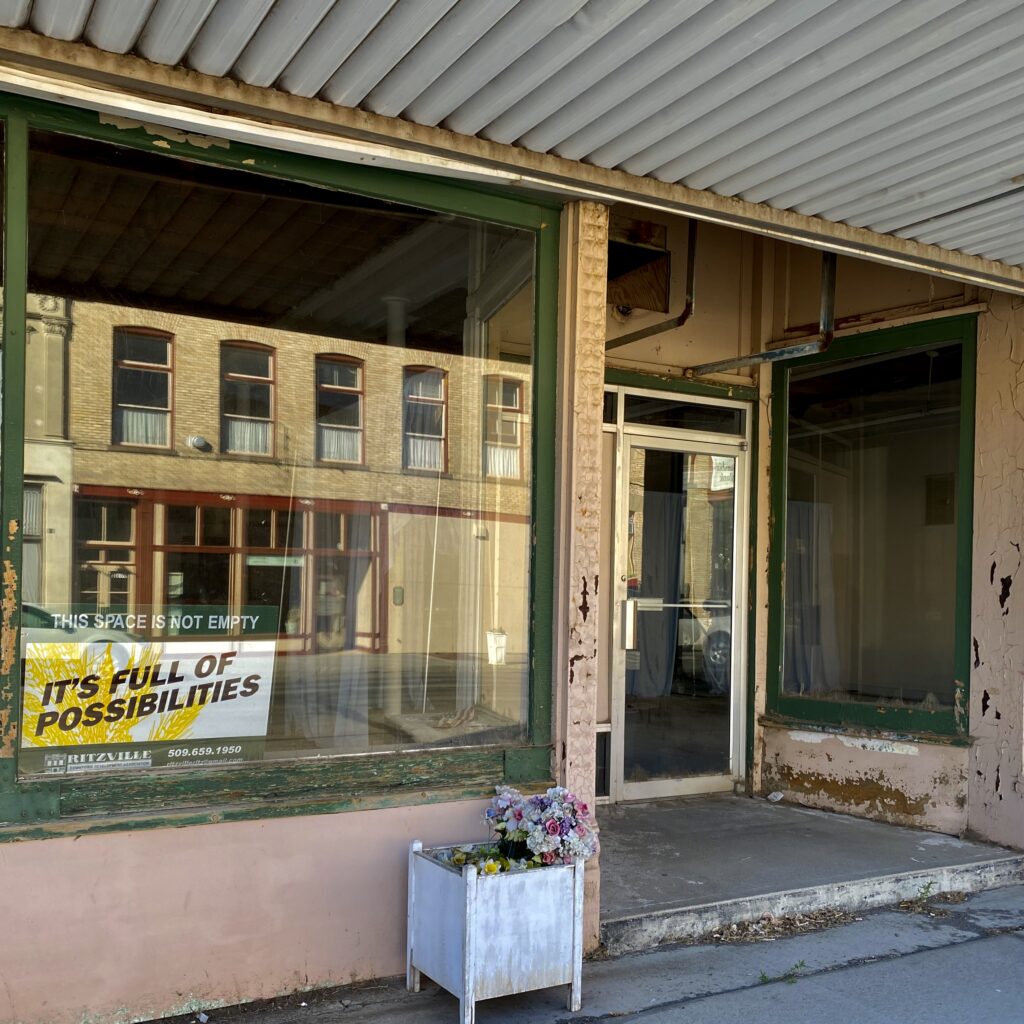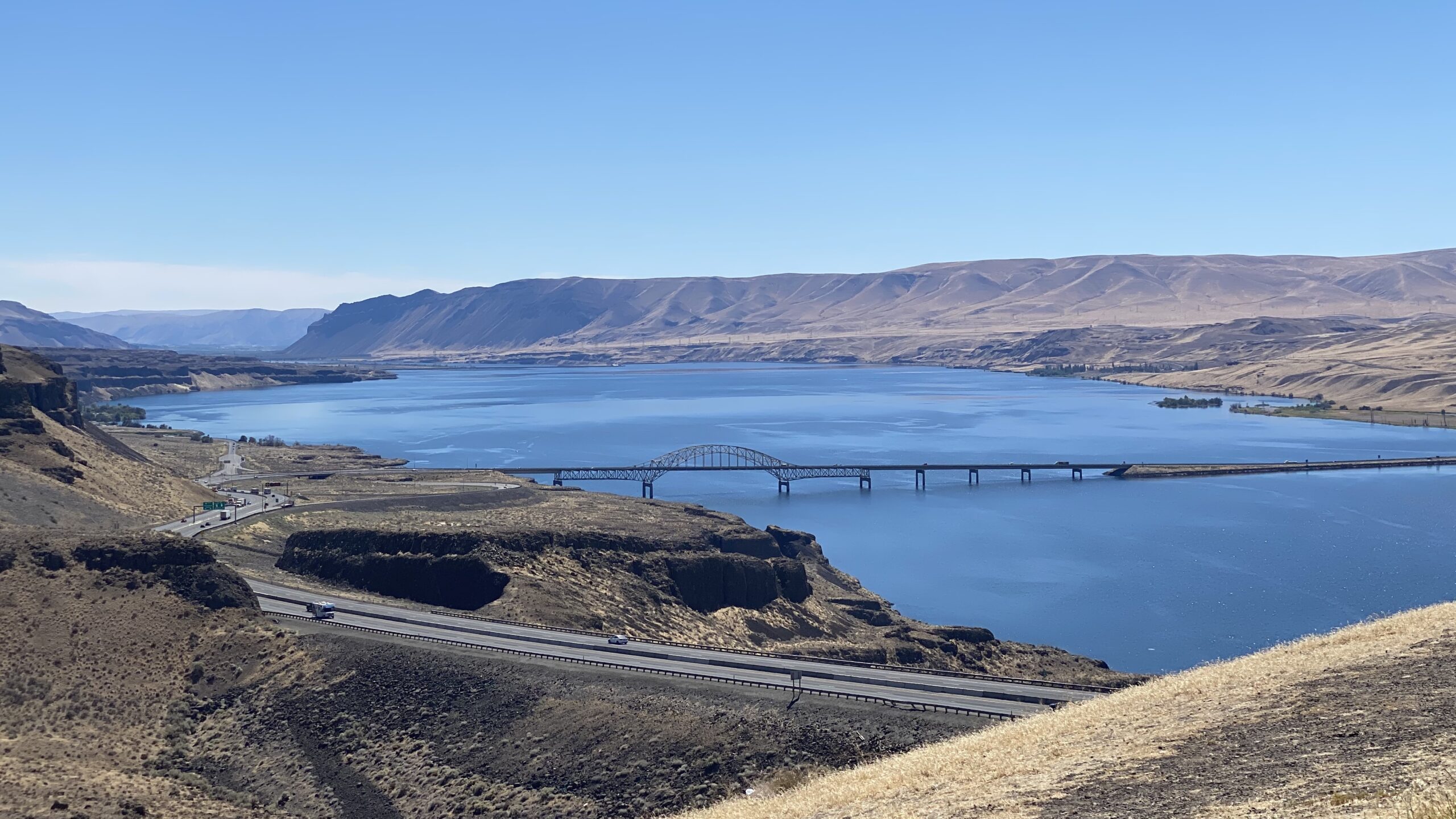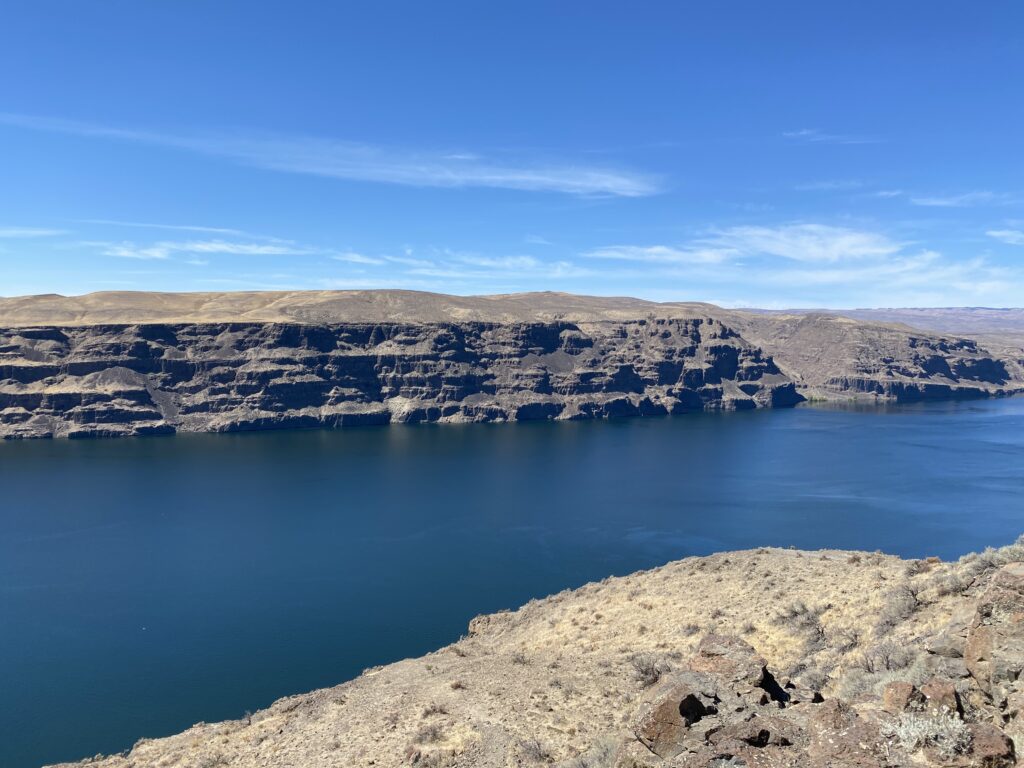
We left Wednesday morning with the Channeled Scablands in our sights – a 225 mile return to eastern Washington’s Coulee City, maybe play 9 holes at The Vic or take a dip in Baker Lake for old times sake. Ten days and 1446 miles to get from Tacoma Washington to Taos New Mexico or about 150 miles a day would give us plenty of time to linger and cross the heatwave keeping tire temps below Engineer Eric’s 150 degree max.
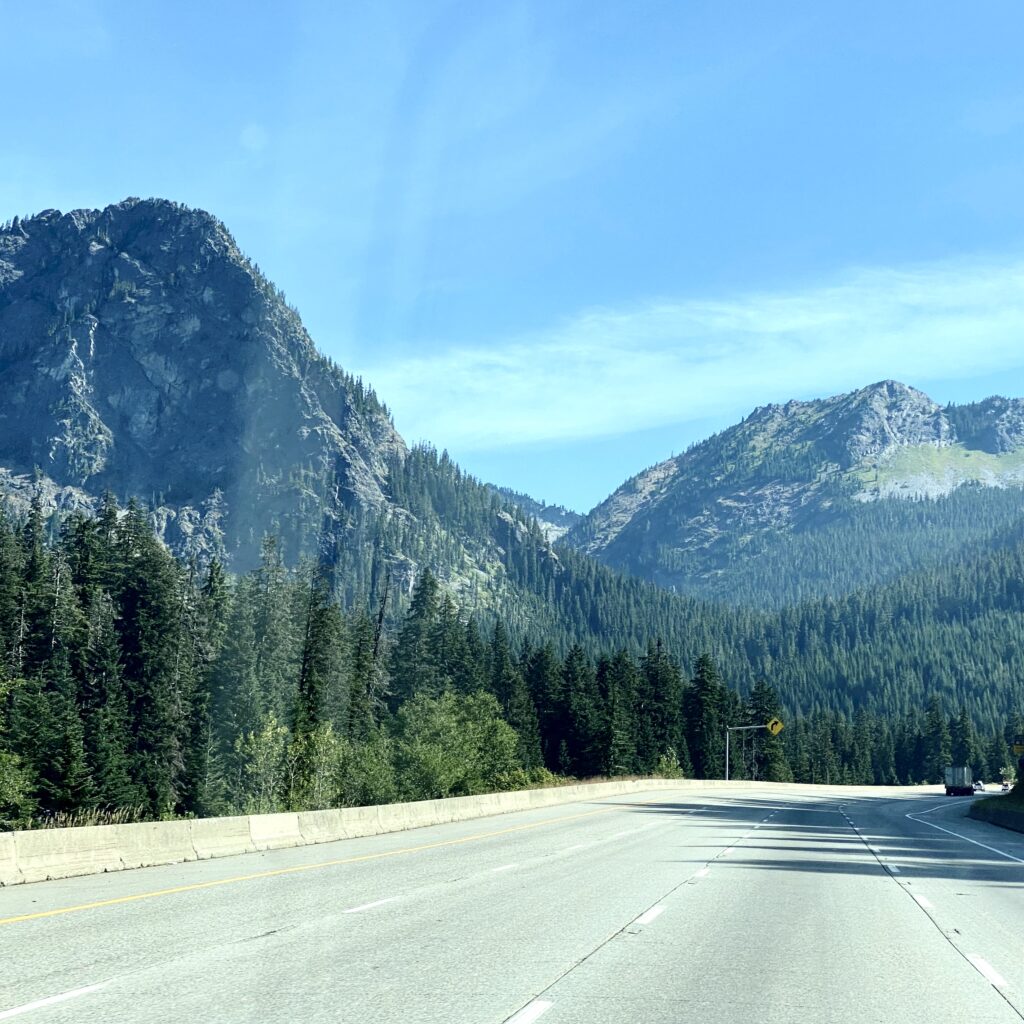
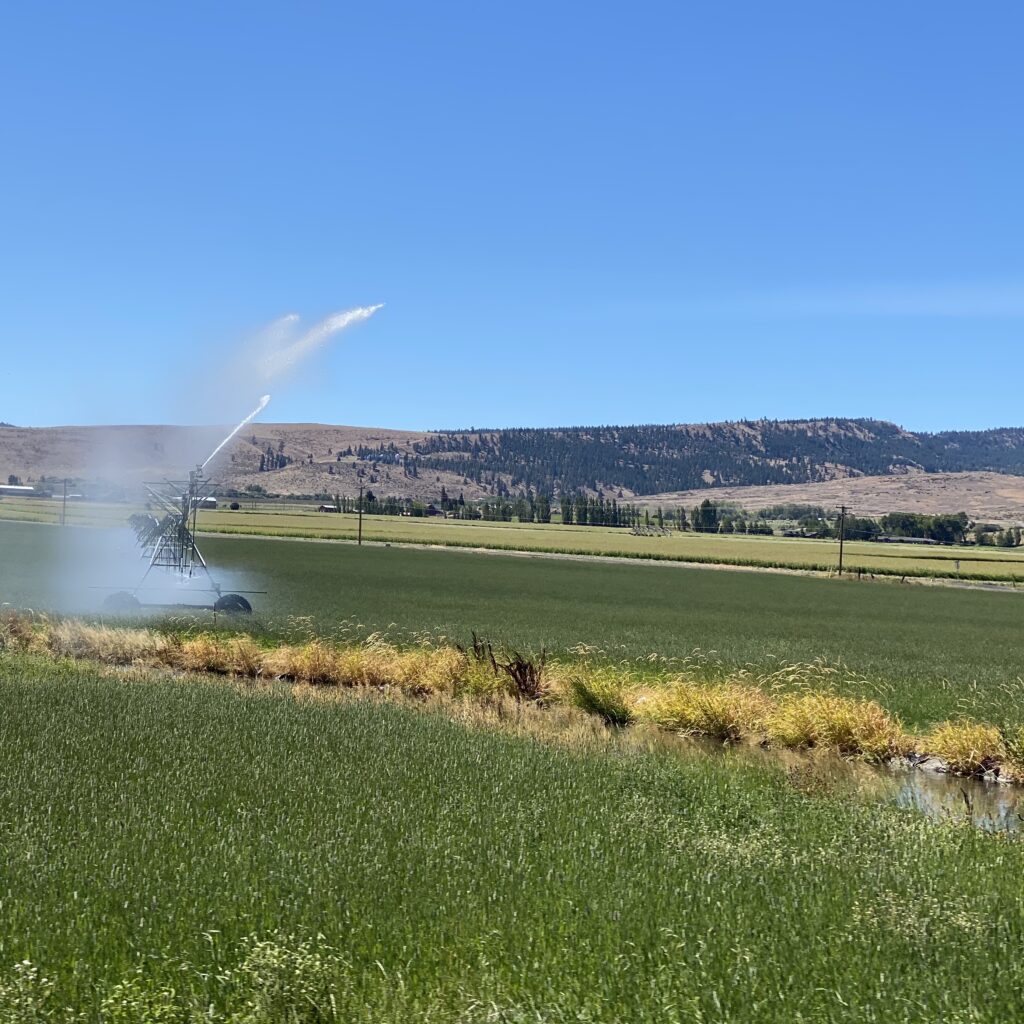
Interstate 90 took us through the mountainous Snoqualmie Pass and into hypnotic miles of wheat farms dotted with giant wind turbines that harness speeding Pac ocean air to provide clean and renewable energy across the state. Crossing the Columbia River, we stopped at a scenic vista to climb 400 vertical feet to walk among the steel horses at the “Grandfather Cuts Loose the Ponies” public art installation and absorb the Scabland landscape below.
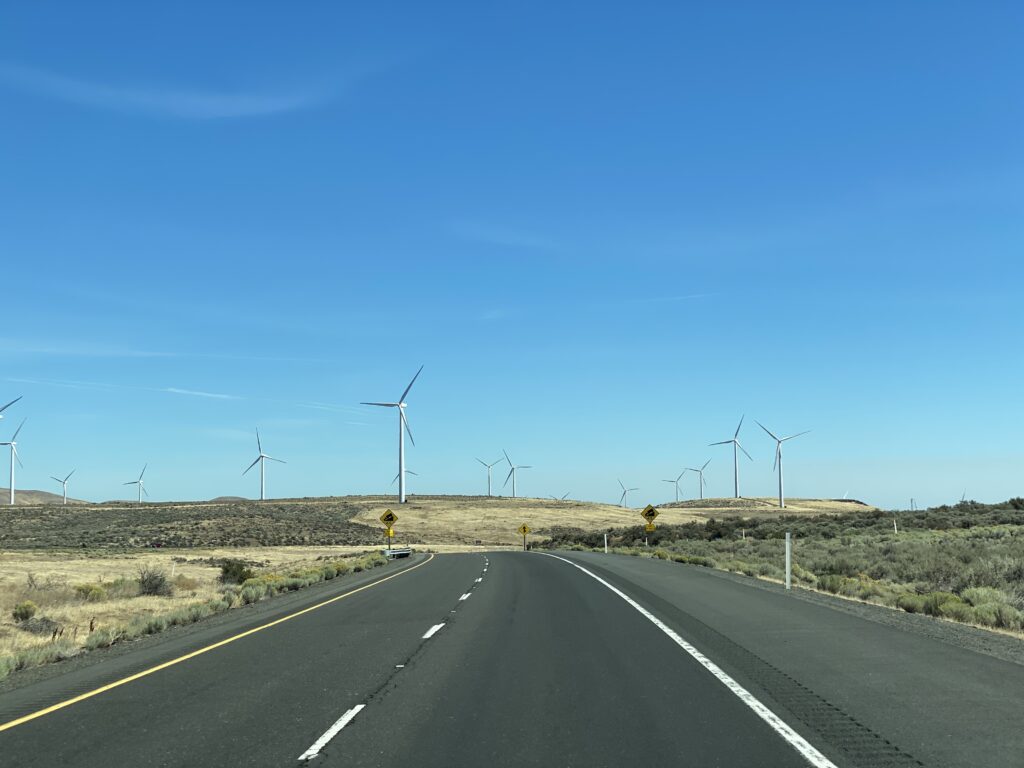
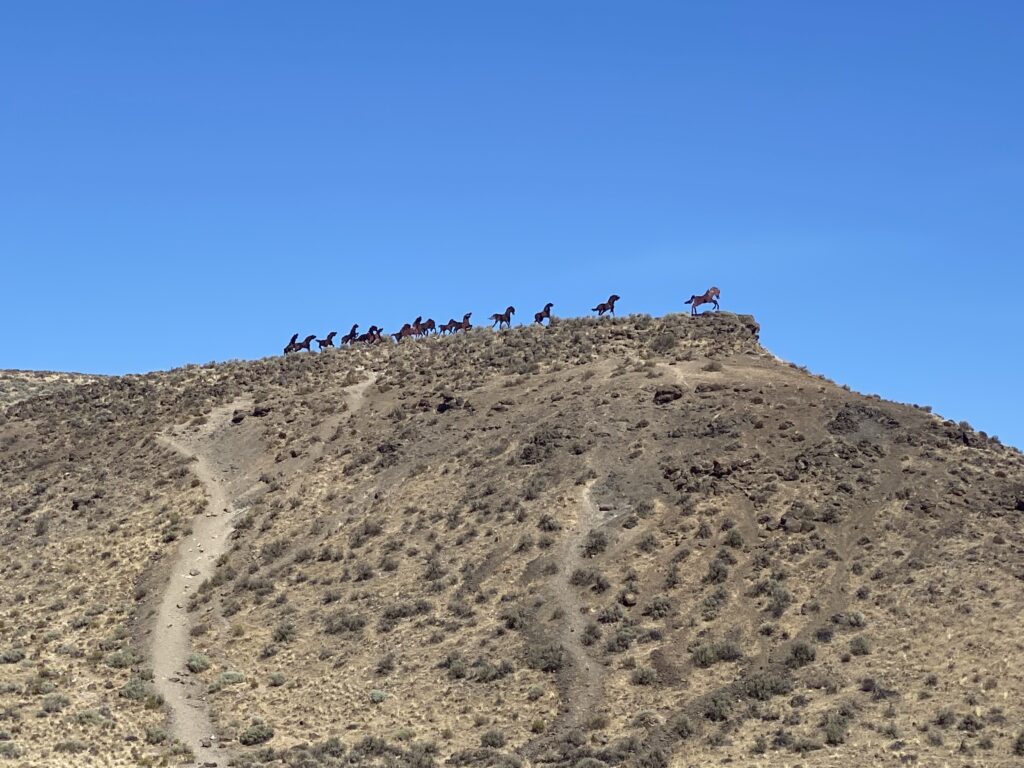
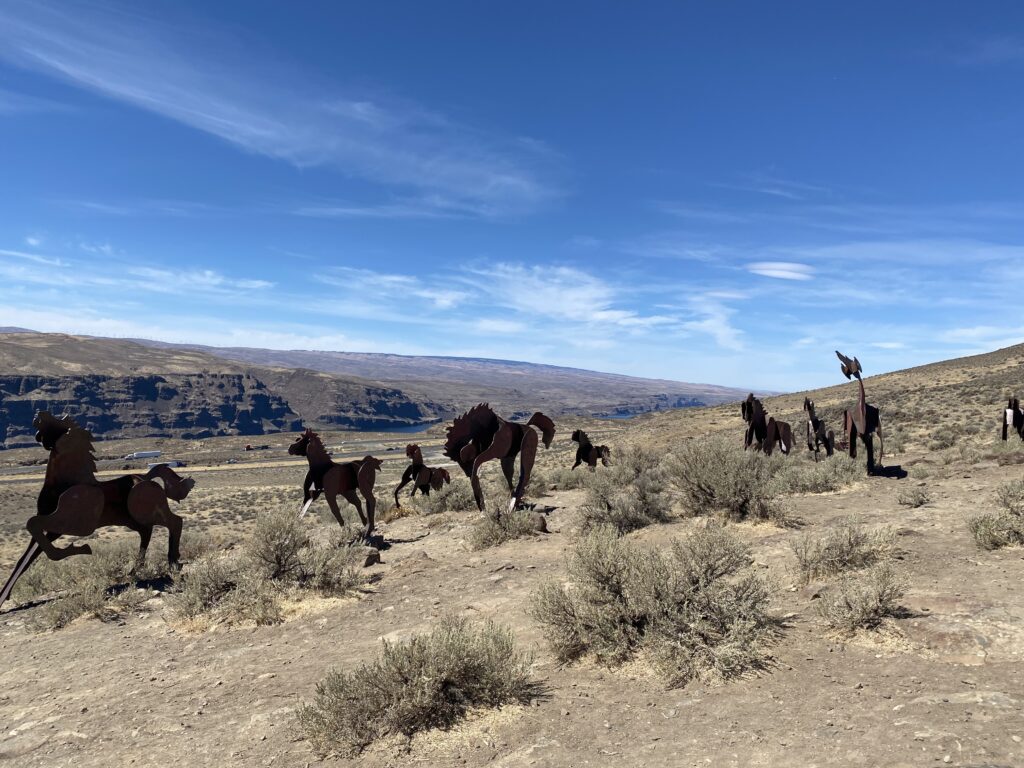
There’s an internal sense of belonging sparked by the barren bedrock sculpted for millions of years among smooth and glimmering sapphire waterways. It’s a place that draws us in, takes our breath and releases us back to reality. Satisfied, we bypassed the Coulee exit and headed to Ritzville, 60 miles short of Spokane.
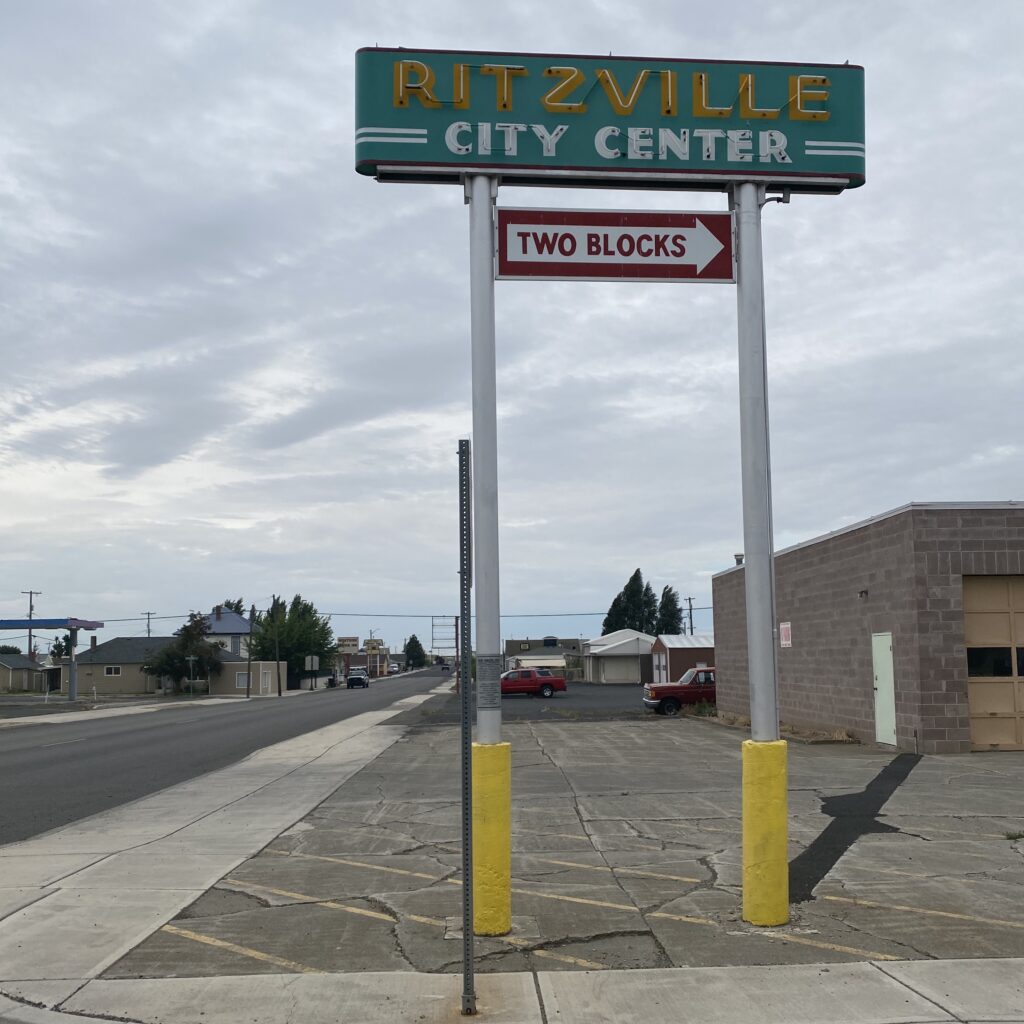
Rolling in no reservation mode, Sheri tapped into the Allstays app and started calling state and county parks for availability. With a possible score at the covid closed Ritzville Fairgrounds, the phone attendant advised us she only saw 4 trailers last week but couldn’t tell us for sure what was going on there. Taking a chance, we scored a shaded electric hookup in a grass field on the edge of town. Pull in, knock on the camp host door, pass a $20, agree to one night and no amenities other than a 30 amp plug and you’re good to go.
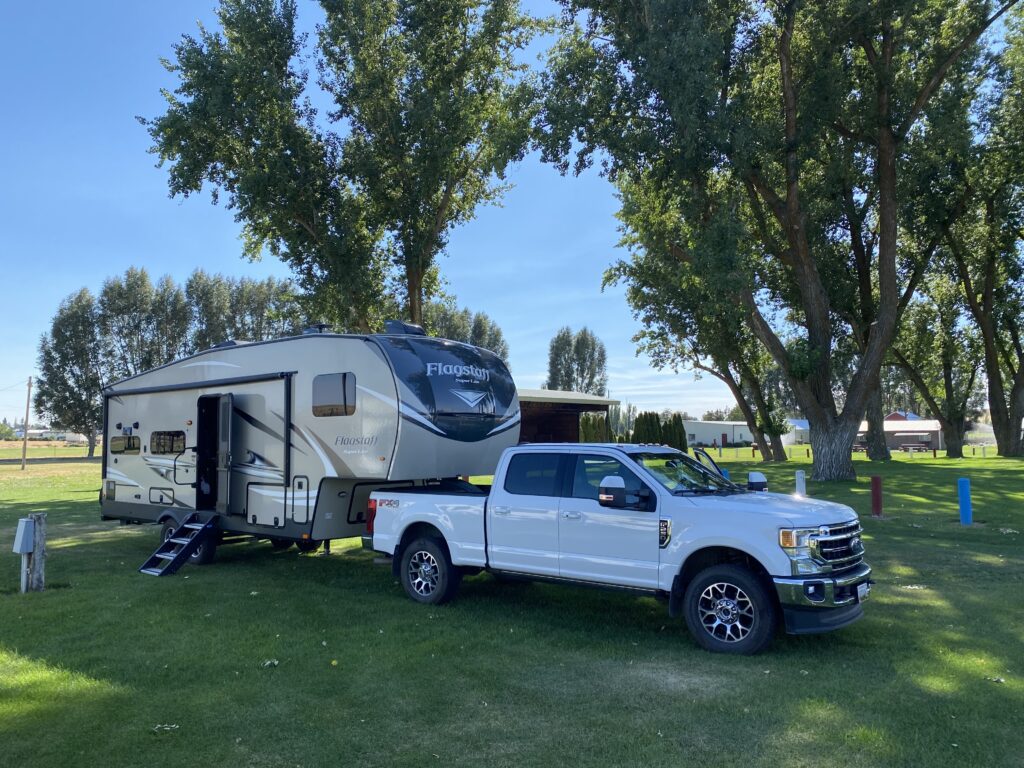
Leaving Roxie on the hitch, we rode the Comos into town where we met County Commissioner, body shop owner and sculptor John Marshall. The stripes in his large scale American Flag are recycled truck panels, bent to a wave in a Tacoma factory and the stars are painted and buffed vintage license plates from the 50 states, in order of joining the union.
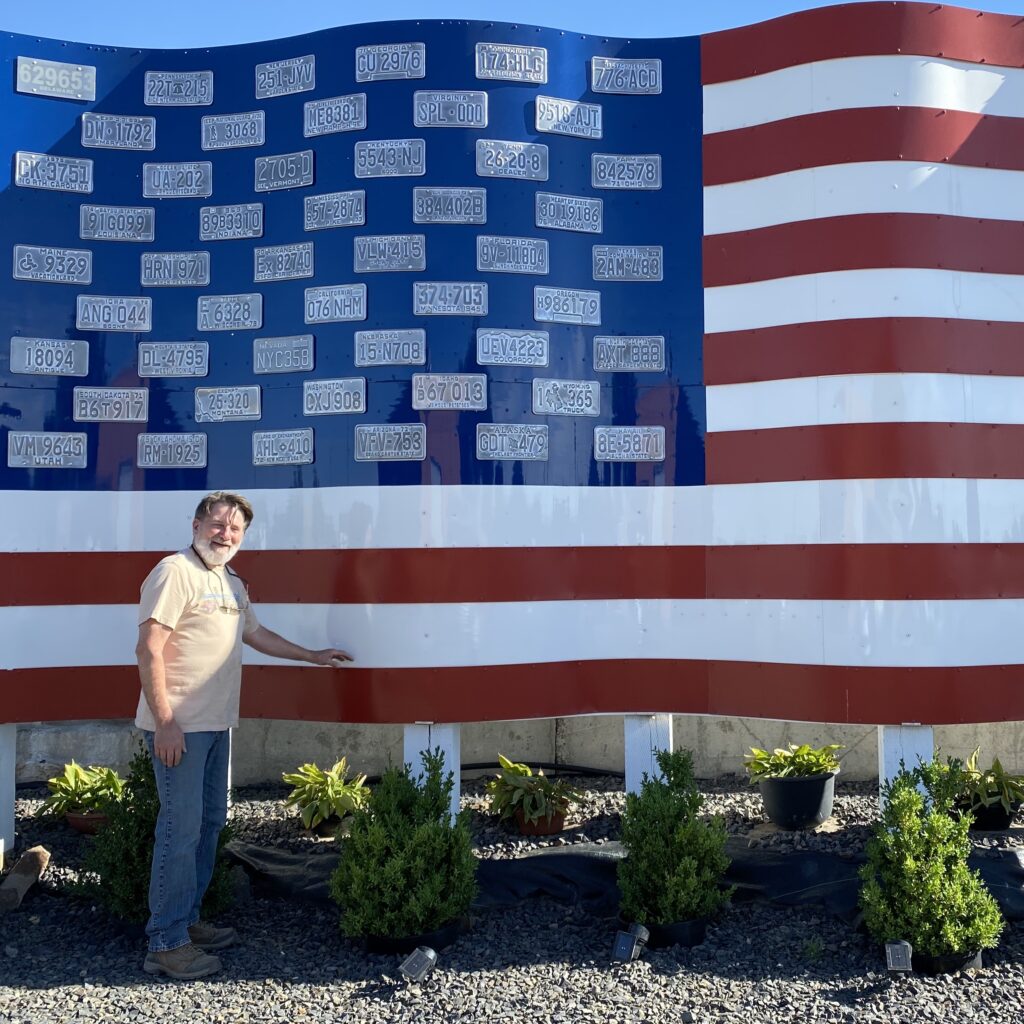
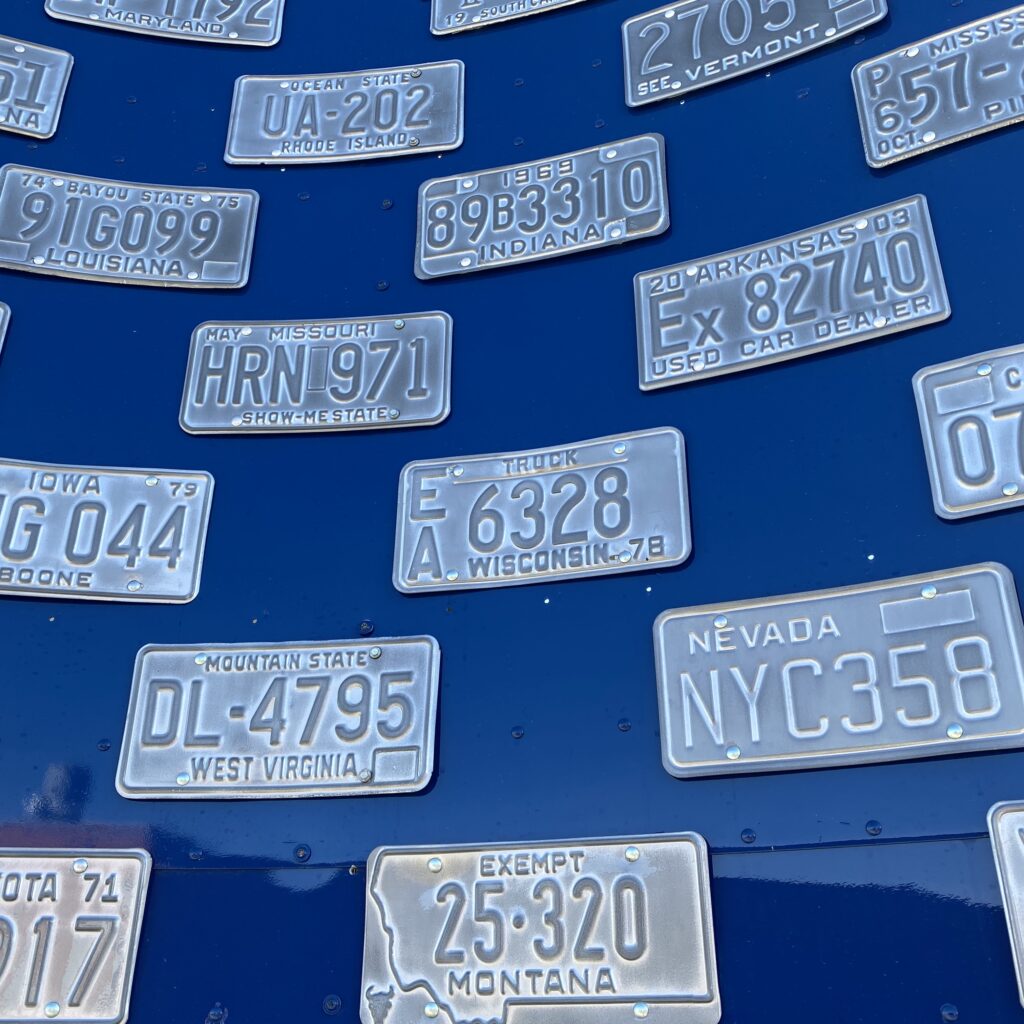
Like Coulee City, Ritzville is a town on the edge. They have an active rail line running through town with whistles blowing just about every hour and a granary processing wheat from surrounding communities. There is public art, a walking tour route, perfectly maintained playground, skatepark and little league baseball field. The main attraction is the Fairgrounds where in normal times there’d be a rodeo every weekend with barrel racing and bull riding, livestock shows and weight competitions.
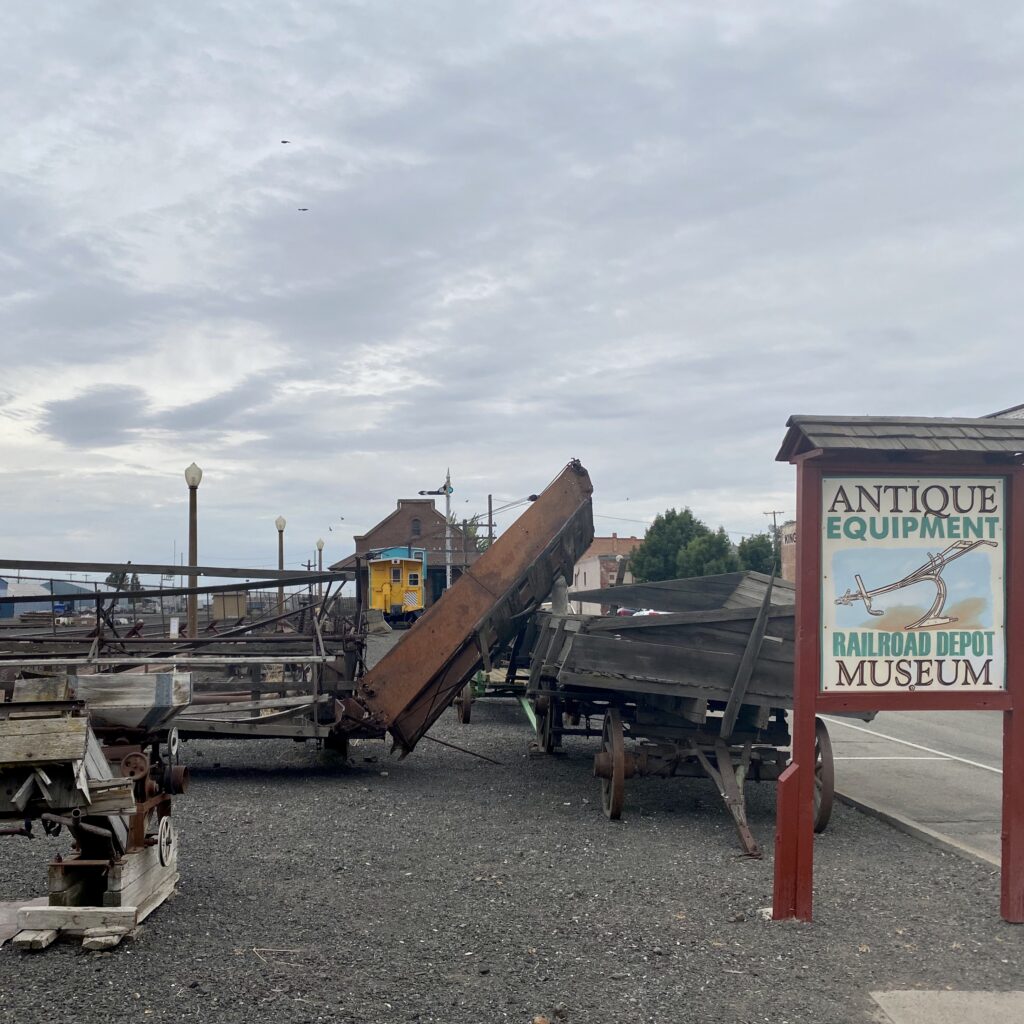
While much of the town’s homes are in disrepair and the storefronts are shuttered, there is a sense of optimism felt throughout the town. The chug and whistle turned out to be a cure for Eric’s insomnia and the morning songbirds in the fields of the fairgrounds were a gentle wake up call. This is a place that has the raw materials for the good life. It’s just missing that economic punch like so many small towns we’ve visited along the way.
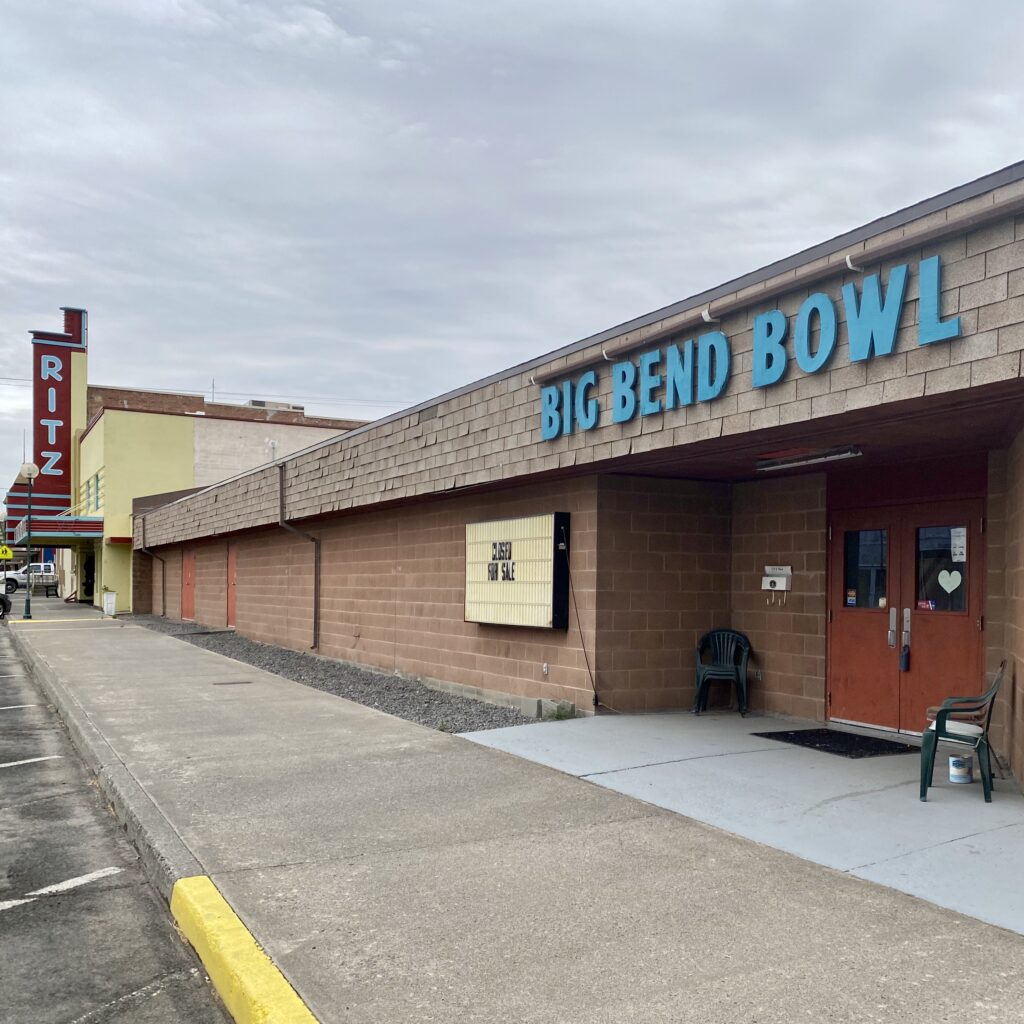
Built in the 1960s, high speed throughways are a testament to one of the greatest infrastructure projects of all time, the U.S. Interstate system. In eastern Washington, I-90 bends gently around Ritzville. There’s an interchange with the ubiquitous Love’s service station as the anchor and once you’ve gassed up there is little reason to go any further than that.
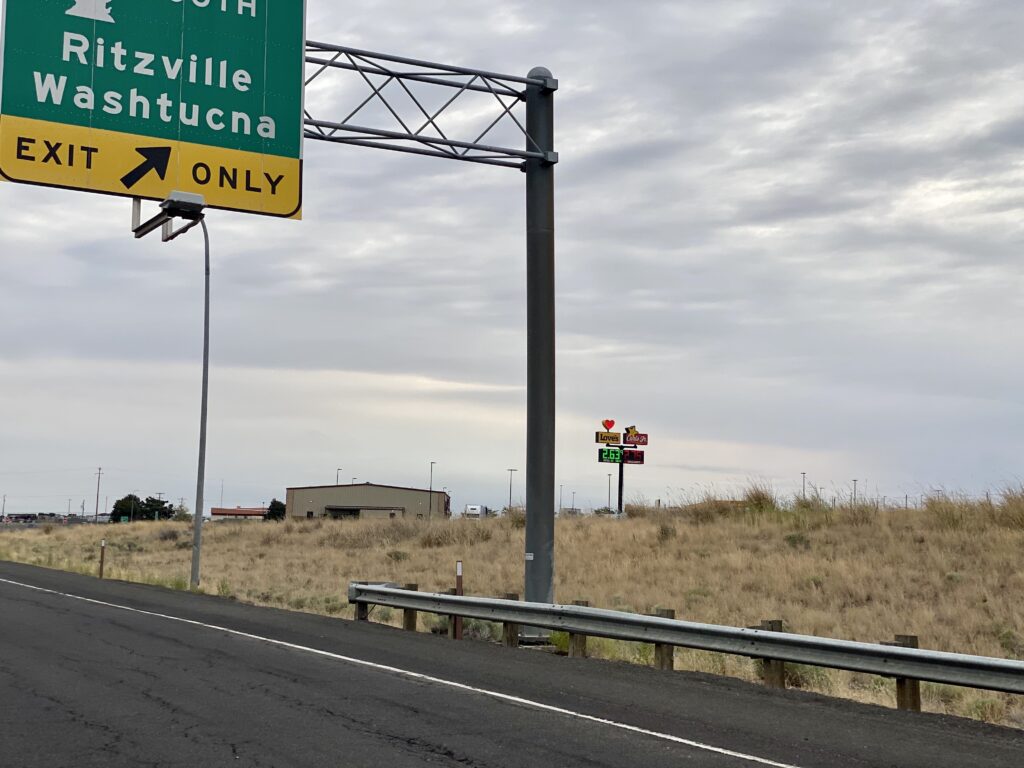
Two miles away however, a once thriving town sits lost in time. Still the wheat shipping capitol of Adams County Washington, a large granary fills double-tow tractor trailers during harvest season over and over and over again. The town is neatly laid out in a neat grid with Main Street in the center. Grand buildings from the turn of the century harken back to a time when the town hosted considerable cross-coast traffic along old WA route 10. When motels offered a clean, convenient, and reasonable priced place to stay and the downtown district two blocks away provided a perfect place to stroll, shop, and find a restaurant for dinner with a movie theater and bowling alley for entertainment. On a drive to or from the Seattle/Portland area to Spokane, Chicago, or any points east, Ritzville offered a safe, vibrant, respite for the traveler.
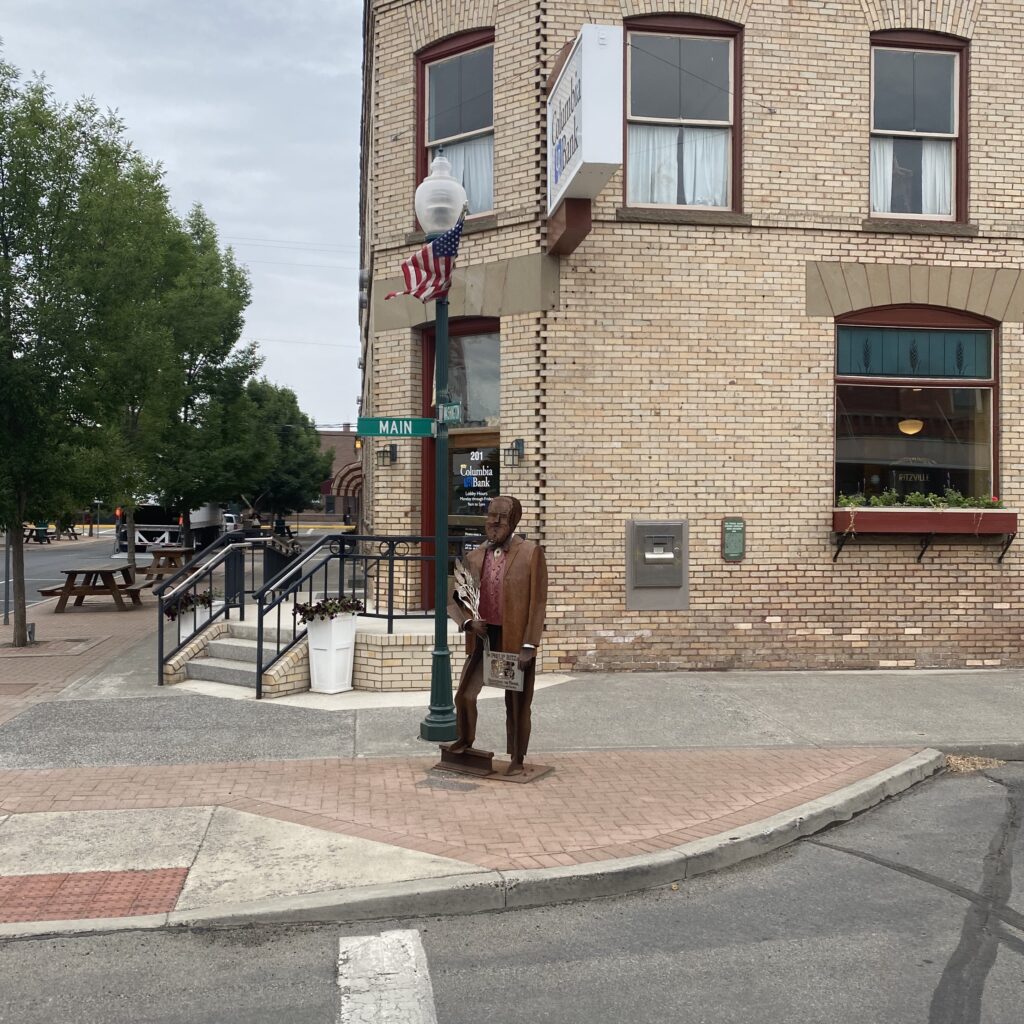
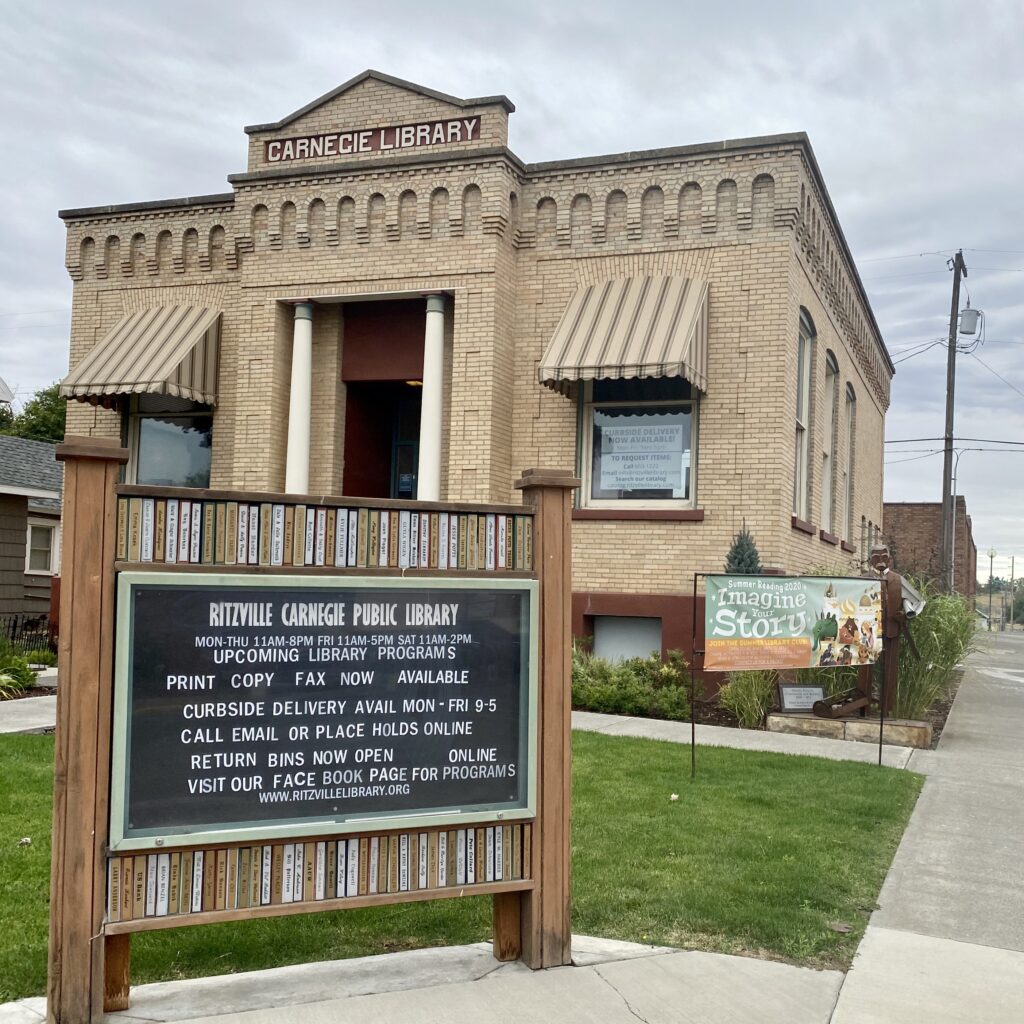
The relics of that time still remain. In the 1990’s, the local chamber of commerce created an historic district, distributed art pieces, memorialized yesteryear with museums and tried very hard to energize the stagnant commercial district. But, except for perhaps Wall Drug or South of the Border, people don’t travel like that. No one is pulling off of I-90 to capture the vibe of a turn-of-the-century grain-shipping town when Spokane is just an hour down the road. When we road our bicycles around town, locals sitting outside the church wondered in a friendly way why we were in the town. We were unfortunately a total anomaly.
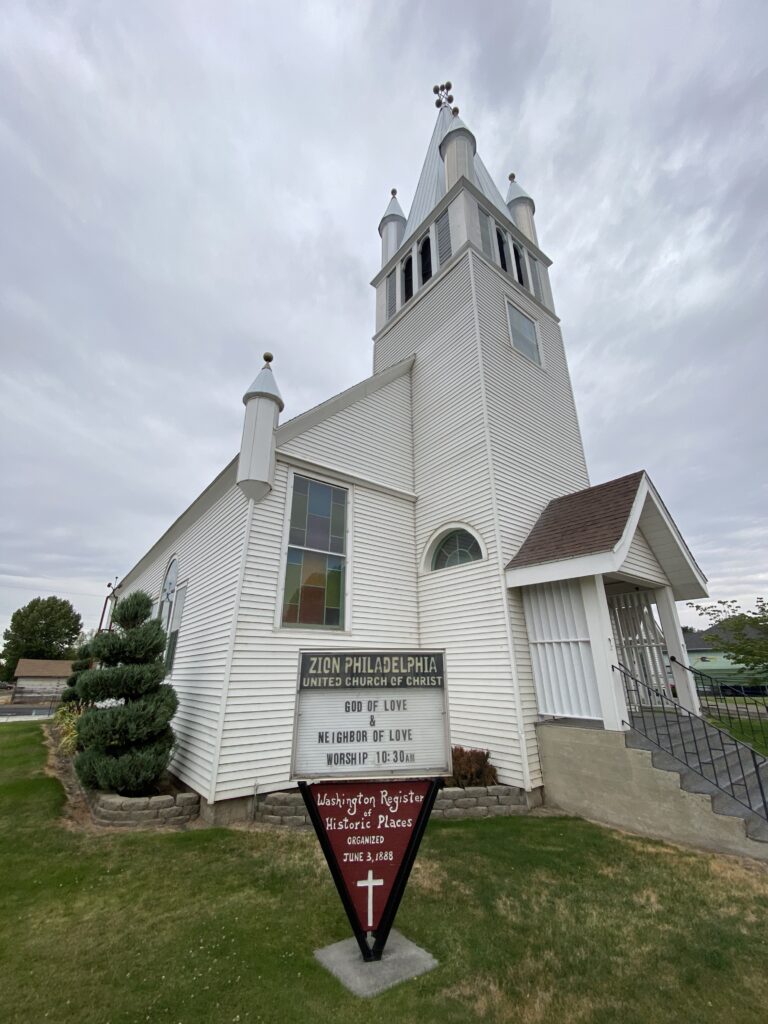
With COVID here, the rodeo and stores are shuttered; the situation is dire. The progress of the Interstate was a death sentence for the small town America heartland. People do not travel from small town to small town any longer: their names are no more than curiosities on an Exit sign. The closest anyone gets to speaking with a townie is the cashier manning the register at the Exxon station. The interstates opened the country up, but also emptied it out. Big population centers expanded, especially on the coasts, sucking the life from the towns in between.
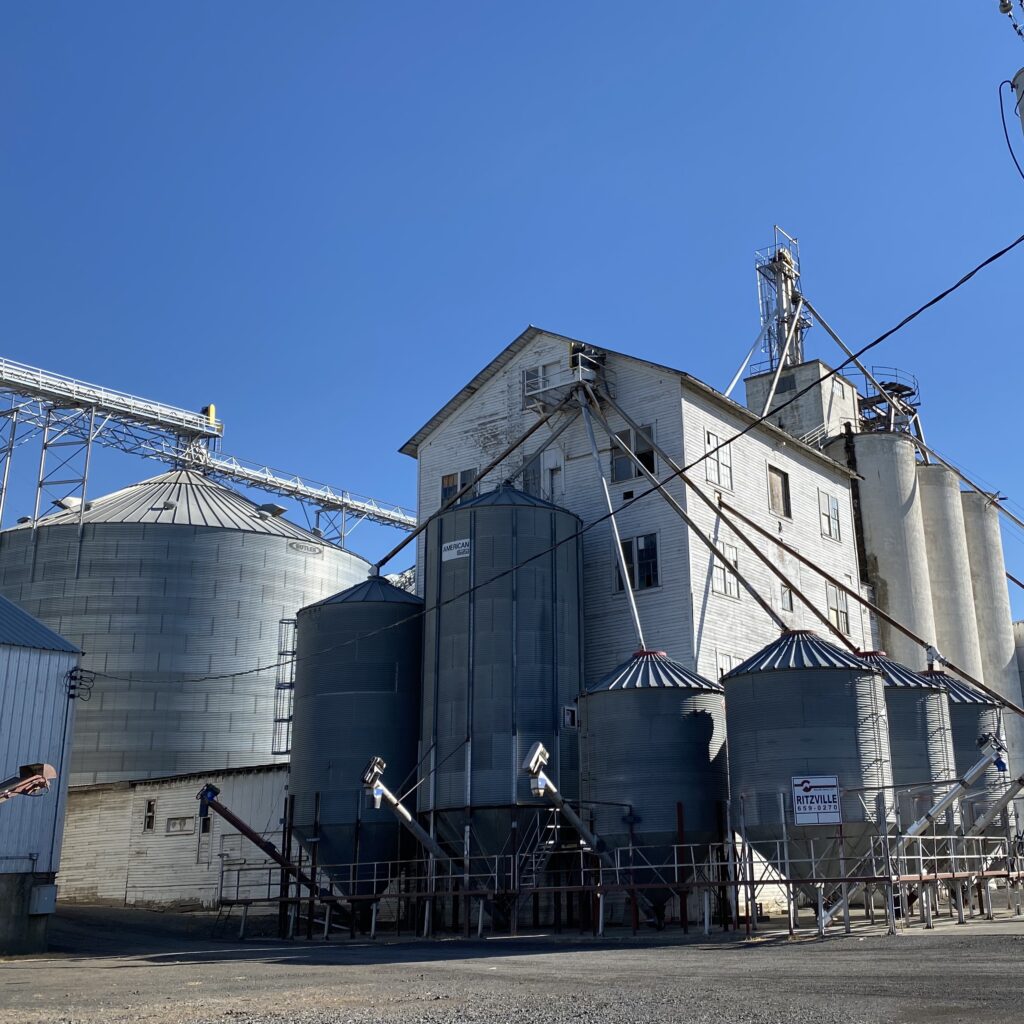
But he towns are still there. Children ride their bikes to school. The church hosts a weekly pot-luck. The grocery clerk knows everyone’s name. With each passing decade they get smaller still. Can technology save what progress destroyed? Could 5G fast internet and the ability for virtual work bring young folks to small town America? Ritzville does not have even one chain store: not a Dollar Something, not a Starbucks, not a McDonalds. You get your coffee at the Boxwood diner. The local general store is called “Pretty Good Grocery.” Does anyone even want that anymore? Why not?
